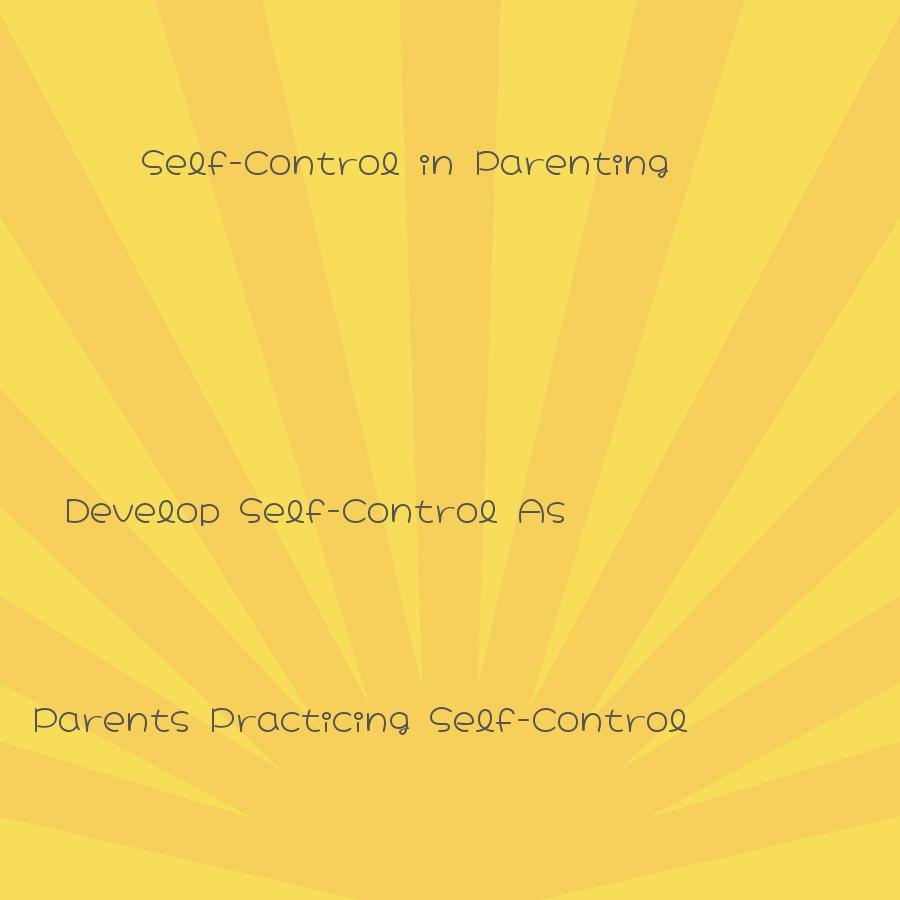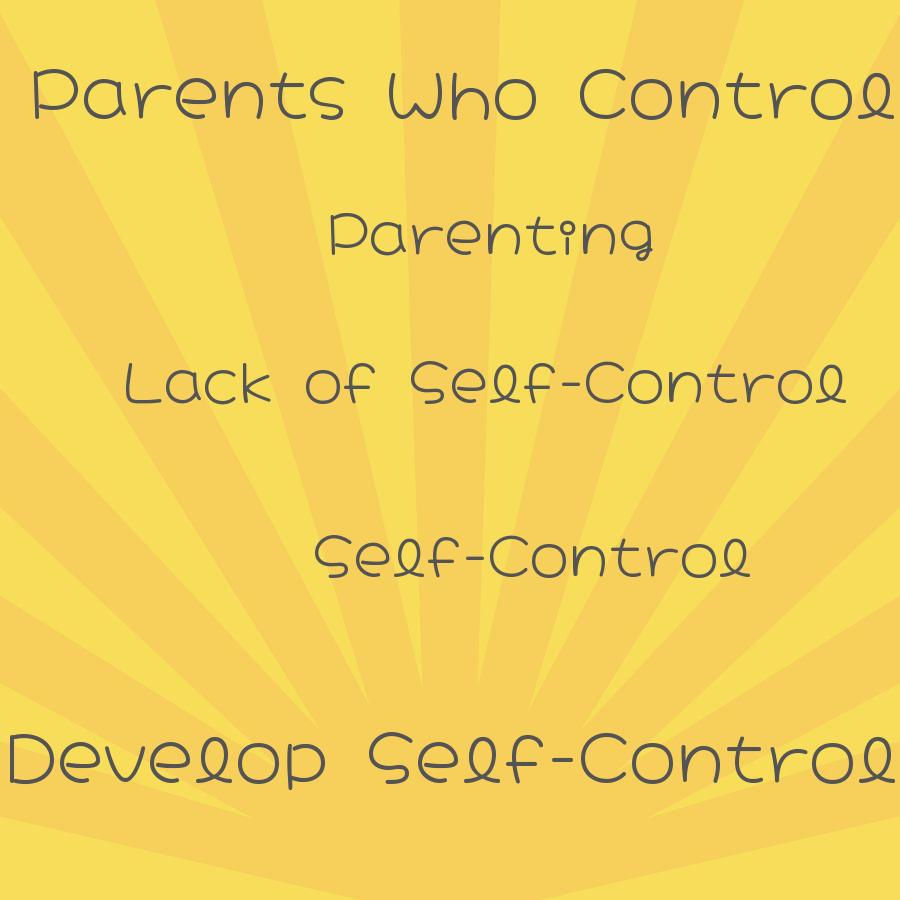Parents who control themselves exhibit the quality of emotional regulation, which involves managing their own emotions and reactions in a calm and collected manner.
As a child, I was always fascinated by the way my parents handled difficult situations. They were calm and collected, never losing their cool even when things got tough.
It wasn’t until I became a parent myself that I realized just how much self-control they had. Parenting is hard work, and it’s easy to get frustrated or overwhelmed when your child is misbehaving or pushing your buttons.
But what sets great parents apart from the rest is their ability to control themselves in these moments of stress.
In this blog post, we’ll explore the importance of self-control in parenting and discuss some strategies for developing this essential quality. Whether you’re a new parent struggling to keep your cool or an experienced one looking for ways to improve your parenting skills, you won’t want to miss this insightful discussion on what it takes to be a truly great parent.
So sit back, relax, and let’s dive into the world of parenting with self-control!
Here You Will Learn:
Importance of Self-Control in Parenting


As parents, we all want to raise happy and well-adjusted children. We read books, attend parenting classes, and seek advice from friends and family members in our quest to become the best possible parents.
But one quality that often gets overlooked is self-control.
Self-control is the ability to regulate your thoughts, emotions, and behaviors in order to achieve a desired outcome. In parenting terms, this means being able to stay calm when your child is throwing a tantrum or acting out of line.
Parents who have mastered self-control are better equipped to handle challenging situations with their children without losing their temper or resorting to punishment as the only solution. They are able to model healthy emotional regulation for their kids by staying composed even when things get tough.
But why exactly is self-control so important in parenting? For starters, it helps build trust between parent and child by creating an environment where both parties feel safe expressing themselves without fear of judgment or retaliation. It teaches children valuable life skills such as problem-solving techniques that they can use throughout their lives.
As I reflect on my own childhood experiences with my parents’ remarkable display of self-restraint during difficult times; I realize how much impact this has had on me today as an adult raising my own kids – It’s not just about controlling yourself but also teaching them how they too can control themselves through modeling good behavior!
Benefits of Parents Practicing Self-Control
As I watched my parents navigate the ups and downs of parenting with grace and self-control, I couldn’t help but wonder what made them so different from other parents. It wasn’t until later in life that I realized just how much their ability to control themselves had impacted our family dynamic.
Parents who practice self-control have a significant advantage when it comes to raising happy, healthy children. Here are some benefits of practicing self-control as a parent:
1. Improved Communication: When you’re able to control your emotions during difficult conversations or situations with your child, you’ll be better equipped to communicate effectively without resorting to yelling or anger.
2. Positive Role Modeling: Children learn by example, and when they see their parents practicing self-control in challenging situations, they’re more likely to adopt these same behaviors themselves.
3. Increased Empathy: Practicing empathy is an essential part of effective parenting; however, it can be challenging if we allow our emotions always get the best of us.
By controlling ourselves during stressful moments with our children we can increase empathy towards them which will lead us towards better understanding about their needs.
In short – Parents who practice self-control set an excellent example for their kids while also improving communication skills between each other leading towards healthier relationships within families!
How to Develop Self-Control As a Parent
As a parent, it’s easy to get caught up in the moment and react impulsively when your child is misbehaving or pushing your buttons. However, reacting without thinking can often lead to negative consequences and damage the relationship between you and your child.
That’s why developing self-control as a parent is so important.
So how do you develop self-control? One strategy is to practice mindfulness meditation. Mindfulness involves being present in the moment without judgment or distraction, which can help you stay calm even when things are stressful.
Another way to develop self-control as a parent is by setting clear boundaries for yourself and sticking to them. For example, if you know that yelling at your child only makes things worse, make a commitment not to yell no matter how frustrated you feel.
Remember that developing self-control takes time and practice. Don’t beat yourself up if you slip up from time-to-time; instead use those moments as opportunities for growth.
By practicing mindfulness meditation regularly while also setting clear boundaries for ourselves we will be able control our emotions better during difficult situations with our children leading us towards becoming great parents who have mastered their own selves!
The Negative Effects of Lack of Self-Control in Parenting
As a parent, it’s easy to get caught up in the moment and react impulsively when your child is misbehaving. However, reacting without self-control can have negative effects on both you and your child.
When parents lack self-control in their parenting approach, they may resort to yelling or physical punishment as a means of discipline. This type of behavior can lead to feelings of fear or resentment from the child towards their parent.
Furthermore, studies have shown that children who experience harsh discipline are more likely to develop behavioral problems such as aggression and defiance later on in life. These children may struggle with low self-esteem due to feeling unloved or unwanted by their parents.
On the other hand, parents who exhibit self-control when disciplining their children tend to have better relationships with them overall. They are able to communicate effectively without resorting to anger or violence which helps build trust between them.
Practicing self-control is an essential quality for any parent looking for positive outcomes while raising kids; it not only benefits our relationship with our kids but also sets them up for success later on in life by teaching healthy coping mechanisms instead of harmful ones like aggression and defiance
Strategies for Maintaining Control During Challenging Situations
1. Take a deep breath: When your child is pushing your buttons or misbehaving, take a moment to step back and take a deep breath before responding.
2. Practice mindfulness: Mindfulness meditation can help you become more aware of your thoughts and emotions so that you’re better equipped to manage them when things get stressful.
3. Use positive self-talk: Instead of getting down on yourself when things don’t go as planned, use positive affirmations like “I am capable” or “I am doing my best.”
4. Seek support from others: Whether it’s talking with other parents who have been through similar experiences or seeking professional counseling services, having someone else there for support can make all the difference in helping maintain control during difficult times.
By practicing these strategies consistently over time, parents will find themselves better able to maintain their composure even in the most challenging parenting situations – ultimately leading them towards becoming great role models for their children!